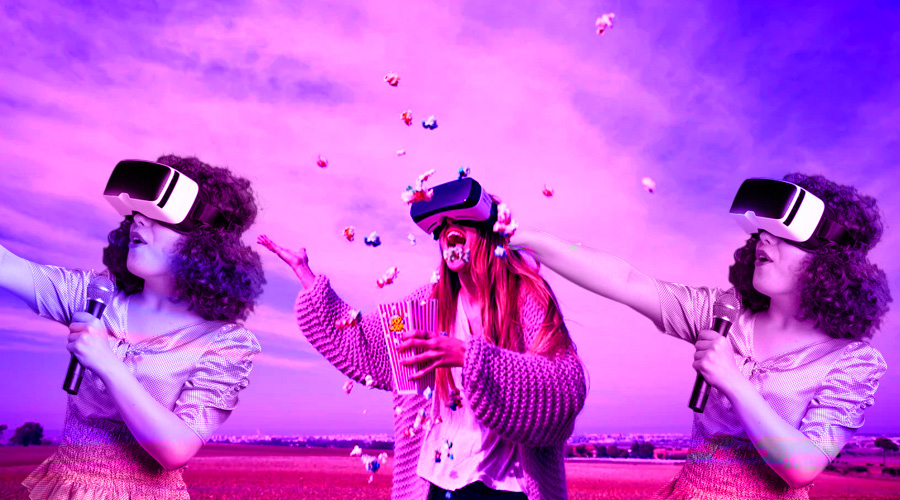
Do you find yourself eagerly tuning in to the latest reality TV shows, unable to resist their unfiltered allure? You're not alone.
Reality TV has become a guilty pleasure for many, offering an escape from everyday life and a chance to indulge in voyeuristic tendencies.
In this article, we will take a closer look at why reality TV holds such appeal by examining the elements of unscripted drama, the thrill of competition, the power of character development, and its impact on society.
Get ready to delve into the fascinating world of entertainment's guilty pleasure.
Key Takeaways
- Raw and unscripted drama captivates viewers and creates emotional investment
- Reality TV offers escapism and allows viewers to become voyeurs into the lives of others
- The thrill of competition taps into primal desires for excitement and victory
- Character development in reality TV captivates audiences and inspires aspirations for self-improvement
The Appeal of Unscripted Drama
You can't help but be drawn to the raw and unscripted drama that reality TV offers. There's something undeniably captivating about watching real people navigate through intense situations without a script or a safety net.
The appeal lies in the authenticity of it all - knowing that what you're witnessing is not just a performance, but genuine human emotions unfolding before your eyes. It's this sense of reality that creates a deep emotional investment in the viewers.
Whether it's cheering for your favorite contestant, empathizing with their struggles, or feeling the thrill of their triumphs, reality TV taps into our desire for freedom from scripted narratives and allows us to experience the highs and lows alongside these individuals.
It's no wonder why this guilty pleasure continues to dominate our screens and capture our undivided attention.
Escapism and Voyeurism: Why We Love to Watch
Escapism and voyeurism are the reasons we can't resist watching reality TV. It offers an opportunity to escape from our own lives, even if only for a short time, allowing us to immerse ourselves in the drama and chaos of others. Through this guilty pleasure, we become voyeurs, peering into the lives of strangers and indulging in their triumphs and failures.

Here's why we love it:
Celebrity culture: Reality TV allows us to peek behind the curtain of fame and fortune, satisfying our curiosity about the lives of those who seem larger than life.
Social dynamics: We are fascinated by human interactions and relationships. Reality TV provides a front-row seat to observe how people navigate friendships, alliances, conflicts, and power struggles.
Unfiltered authenticity: Unlike scripted shows, reality TV gives us a glimpse into genuine emotions and unfiltered reactions. This rawness appeals to our desire for truthfulness in entertainment.
Emotional release: Watching reality TV can be cathartic as it allows us to experience a range of emotions vicariously through the contestants or participants.
In summary, escapism and voyeurism fuel our addiction to reality TV. It satisfies our craving for celebrity culture while providing insight into social dynamics through unscripted authenticity. So go ahead - indulge in your guilty pleasure!
The Thrill of Competition
The thrill of competition in reality shows keeps us on the edge of our seats. From high-stakes challenges to nail-biting eliminations, these shows tap into our primal desire for excitement and victory. The adrenaline rush that comes from watching contestants push themselves to their limits is addictive, drawing us in week after week. We become invested in the strategies and tactics employed by each participant, analyzing their every move as if we were playing the game ourselves.
Reality TV competitions provide an escape from our mundane lives, allowing us to live vicariously through the contestants. We cheer for our favorites, agonize over their setbacks, and celebrate their triumphs. These shows ignite a fire within us, reminding us of our own competitive spirit and inspiring us to pursue our goals with renewed vigor.
In this world of cutthroat competition, reality TV serves as a reminder that success often requires determination, resilience, and strategic thinking. As viewers, we are not only entertained but also challenged to examine our own approach to life's challenges.

The Power of Character Development
Immerse yourself in the world of reality show competitions and witness the transformative power of character development. Reality TV has captivated audiences for years, and one of its most intriguing aspects is the psychology behind our fascination with personal growth.
As viewers, we are drawn to characters who undergo profound changes throughout their journey on these shows. Here are three reasons why character development in reality TV is so powerful:
Relatability: Watching someone overcome obstacles and grow as a person allows us to see ourselves in their struggles and triumphs. It gives us hope that we too can achieve personal growth.
Inspiration: Witnessing the transformation of contestants from ordinary individuals to confident, self-assured individuals fuels our own aspirations for self-improvement.
Catharsis: Reality TV provides a platform for emotional release, allowing viewers to live vicariously through the characters' highs and lows while experiencing a sense of catharsis.
In conclusion, the power of character development in reality TV lies in its ability to tap into our desires for freedom, personal growth, and emotional connection. It offers an escape from our own lives while inspiring us to become better versions of ourselves.
The Impact of Reality TV on Society
Get ready to discover the profound impact reality shows have on society. You will witness firsthand how these programs shape cultural norms and influence social behavior.
Reality TV has become a powerful force in shaping social influence and psychological effects on individuals. These shows have the ability to create trends, popularize certain behaviors, and even change societal expectations.
Through constant exposure to exaggerated drama, competition, and conflict, viewers begin to normalize aggressive behavior and self-centered attitudes. This can result in a shift towards more selfish values within society as a whole.

Additionally, reality TV often portrays stereotypes and reinforces harmful beliefs about gender roles, body image, and relationships. The constant scrutinization of appearance and personal lives can lead to increased anxiety and dissatisfaction among viewers.
It is important for individuals to be aware of the potential negative consequences of consuming excessive amounts of reality TV content. This awareness is necessary in order to maintain their own freedom of thought and behavior.
Frequently Asked Questions
How do producers ensure that the drama on reality TV shows is not scripted?
Producers ensure unscripted drama on reality TV shows through the role of editing. By selectively arranging footage, they create narratives that captivate viewers. However, ethical concerns arise as this manipulation blurs the line between authenticity and entertainment.
What are some of the most popular reality TV shows that viewers can't seem to get enough of?
You can't resist the most popular reality TV shows, those addictive series that keep you hooked. From "The Bachelor" to "Keeping Up with the Kardashians," these shows offer a guilty pleasure escape from reality.
How do viewers' motivations for watching reality TV differ from their motivations for watching scripted shows or movies?
Viewers' emotions and psychological effects differ when watching reality TV compared to scripted shows or movies. Reality TV evokes curiosity, excitement, and voyeuristic pleasure, while scripted shows offer escapism and emotional connection.
What impact does the portrayal of reality TV contestants have on their personal lives and relationships outside of the show?
The portrayal of reality TV contestants can have a significant impact on their mental health, as they face scrutiny and criticism from the public. It also influences their personal relationships, often leading to strained dynamics and conflicts with loved ones.
Reality TV shows can indeed be considered a form of social commentary, reflecting the values and concerns of society at large. They shape viewers' behavior by promoting certain norms and behaviors, often blurring the line between entertainment and reality.
 SportsHollywoodLifestyleFashionHome & GardenTrendsPrivacy PolicyTerms And Conditions
SportsHollywoodLifestyleFashionHome & GardenTrendsPrivacy PolicyTerms And Conditions
